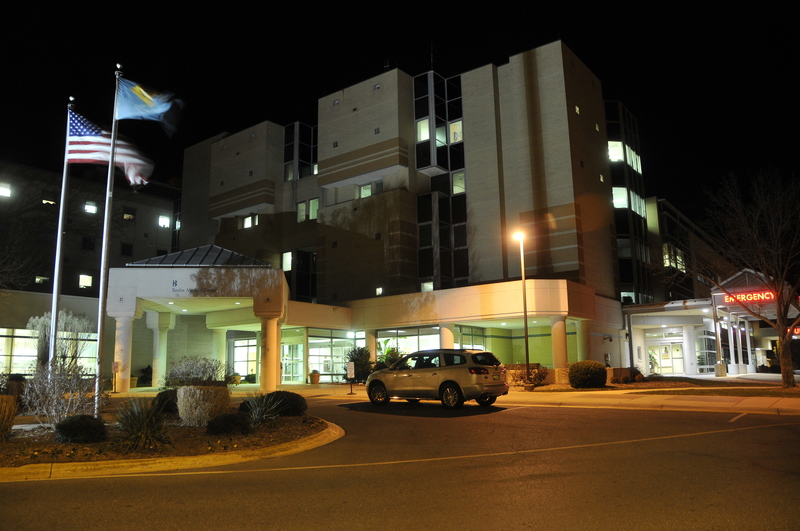The landmark $123 million settlement for victims in the class-action civil suit against pedophile pediatrician Earl Bradley and Beebe Medical Center has been hailed as the best possible outcome by the presiding judge, Beebe attorneys and attorneys for Bradley's victims.
Only two victims opposed the settlement, one concerned that money going to attorneys means less for victims, and the other concerned that those less seriously injured would take money that could go to children who were more seriously injured.
In his ruling approving the settlement, Delaware Superior Court Judge Joseph Slights III said the settlement was fair and adequate and the best possible outcome for everyone.
The attorneys who spent 17 months negotiating the settlement shared that sentiment.
Plaintiff’s attorney Craig Karsnitz said, “I think its fair. It was a difficult case with a lot of moving parts.”
Mike Mustokoff, lead attorney for Beebe, said the settlement was the legal resolution he was most proud of in the 40 years he’s practiced law.
The settlement fund includes not only monetary compensation, but also $1 million in services from Beebe until 2027, when most of the victims will have reached age 18. Still, the trauma of Bradley’s crimes has had effects that money can’t cure.
Plaintiff’s attorney Phil Federico said one of his first clients was a mother whose husband divorced her because he held her responsible for the abuse their child suffered. He said divorce has occurred on more than one occasion since Bradley's arrest and victims have made several suicide attempts.
Federico said every family he has come across is dealing with denial or guilt because their child had been victimized.
“The level of stress they operate under is extraordinary,” he said. Federico said there is no road map for how the families should deal with the damage Bradley’s abuse has caused. “It varies family to family,” he said.
While the Department of Justice has not tracked specific problems, Deputy Attorney General Patricia Dailey Lewis, who has helped run a Lewes office set up to help victims, said the most common issue for victims is dealing with guilt. She said counselors have stressed to victims that what happened to their children was not their fault and that parents were also the victims of a crime.
"We have to reinforce they were the victim of an unspeakable crime just like their kids were,” Dailey Lewis said. “People trust their doctor. They formed a trust, and it was violated in the most horrific way.”
She said the Lewes center has had 2,000 people come in to pick up medical records, although the flow of victims seeking counseling has tapered off.
Dailey Lewis also said the Department of Justice would continue to offer help for victims as long as they need it, with counselors and social workers available in all three counties.
Plaintiff's attorney Chase Brockstedt said class counsel is working with people still coming into the class and that the goal at this point is to make clear that any patient of Bradley’s between 1994 and 2009 that believes they were abused needs to come forward.
“We are going to be measured in our approach,” Brockstedt said. “We want to get this right and maximize the benefits to the victims.”
Only two members of the class objected to the settlement. Slights said in his opinion that one objection was written to him, opposing not the settlement, but the 25 percent fee requested by the plaintiff’s lawyers. Slights said the class member urged the judge to consider that any amount awarded to the lawyers would be that much less available to the victims. Plaintiff’s attorneys ended up reducing their fee from 33 percent to 25 percent and finally to 22.5 percent, or about $28 million in legal fees, which doesn’t include about $3 million in expenses.
Beebe also expressed concern about the fees. President and CEO Jeffrey Fried said, “'It was always our priority to get as much money as possible to the victims and their families.”
The other objection was raised at the Nov. 13 fairness hearing on the settlement in Wilmington, when a class relative said those who were less seriously injured would dilute the claims of the more seriously injured. She also said there had been no apology from Beebe or any of the other defendants.
“Given the size of the class, the fact that only one class member has come forward to express an objection to the proposed settlement is highly significant,” Slights said.
Why class action was best
Slights gave numerous reasons why a class action was the preferred way to go:
- The claims against Beebe and the other defendants all arose from harm caused by Bradley.
- With a potential class of 7,000 patients, litigation of individual cases would have been long, burdensome and impractical.
- The case involved many victims who would be too young to testify and would be traumatized by separate litigation and trials.
- The scope of the damage caused by Bradley would be unknown for some time.
- A class action would prevent a race to the courthouse by attorneys for various victims.
- A class action would ensure fair distribution of limited funds.
- A class action would best protect the interests of all of Bradley’s victims.
In addition, Slights cited the lesson learned from the Catholic Church sexual abuse cases around the country, many of which ended in bankruptcies and prolonged litigation involving multiple creditors.
On why the settlement is good for Bradley’s victims, Slights wrote, “Full-blown litigation and trial posed many risks to class members. Indeed, it is possible, if not likely, that several of the claims would have been dismissed.”
An even bigger danger, Slights said, was that the insurance companies for the defendants, particularly Beebe’s insurers, would have paid nothing. Slights said the settlement also avoids trials, which would have been costly, time-consuming and complex. And that doesn’t even factor in potential appeals, he said, all of which would have taken a significant emotional toll on the victims.
Plaintiff’s attorney Bruce Hudson said, “We’re pleased. We can now get full compensation done in a quicker manner than if we had gone to trial.”
For Beebe, a class action was also preferable as it protected the hospital from bankruptcy.
Alex Pires, a member of the board of Beebe Medical Foundation and a key player in the negotiations said, “The hospital was facing some 1,000 lawsuits, 100 of which had videos of unspeakable acts. If the hospital tried to defend each case they would have lost every trial and the first three or four verdicts would have exceeded the hospital's net worth. The juries and the public would have punished Beebe for not taking responsibility.”
Mustokoff said the hospital would have survived a bankruptcy, but any money for victims would have ended up being fought over between Beebe’s creditors and the victims.
When asked if Beebe could have survived bankruptcy, Pires said, “In my opinion, no.”
Moving forward
Exactly how many victims or class members there are is difficult to pin down, especially because attorneys expect more to join before the Dec. 14 deadline.
Hudson said all of Bradley’s patients – there were more than 7,000 files found at his BayBees Pediatrics office – represented the universe of the class. Hudson said 3,400 patients had current mailing addresses, representing the potential class. The class has been estimated to be between 900 to 1,000 members, although Hudson called the size of the class “a moving target.”
Federico said there was no way to know for sure, but that there are between 925 and 950 victims seeking compensation, a number he doesn’t believe will get much higher. He said there are victims who have elected not to join the class and to instead move on with their lives.
Brockstedt said the number of victims in the class is unknown, but probably is “north of 900.” He said details of how the money will be held and distributed are still be being worked out.
“Victims will be divided into injury categories, with the top class being those with clear evidence of sexual intercourse and the lowest being patients who were not likely abused. Most victims will probably fall in the middle categories – claimants with a significant or reasonable probability of being abused.
The money will be administered by former Philadelphia Court of Common Pleas Judge Thomas Rutter, assisted by Dr. Anne Steinberg, a pediatrician and expert in child sexual abuse cases, and overseen by the Court of Chancery.
Rutter, who served a similar role in the sexual abuse cases involving the Wilmington Catholic Diocese, will assign each victim to an injury category. Each category will have a dollar figure attached to it. The amount payable to an individual victim will be determined by dividing the amount allocated to each injury category with the amount of victims assigned to that category. Because the victims are underage, the money will be held in trust under the supervision of the Court of Chancery.
With approval of the settlement, Beebe can now move forward to improve its financial status. At the Nov. 13 hearing, Fried said Beebe’s credit rating had been downgraded since the Bradley charges came to light, limiting the hospital’s ability to borrow money.
Pires said, “Now that this lawsuit has been resolved, Beebe's credit rating will be restored and thus its ability to invest in new doctors, equipment and technology.
Ryan Mavity covers Milton and the court system. He is married to Rachel Swick Mavity and has two kids, Alex and Jane. Ryan started with the Cape Gazette all the way back in February 2007, previously covering the City of Rehoboth Beach. A native of Easton, Md. and graduate of Towson University, Ryan enjoys watching the Baltimore Ravens, Washington Capitals and Baltimore Orioles in his spare time.























































